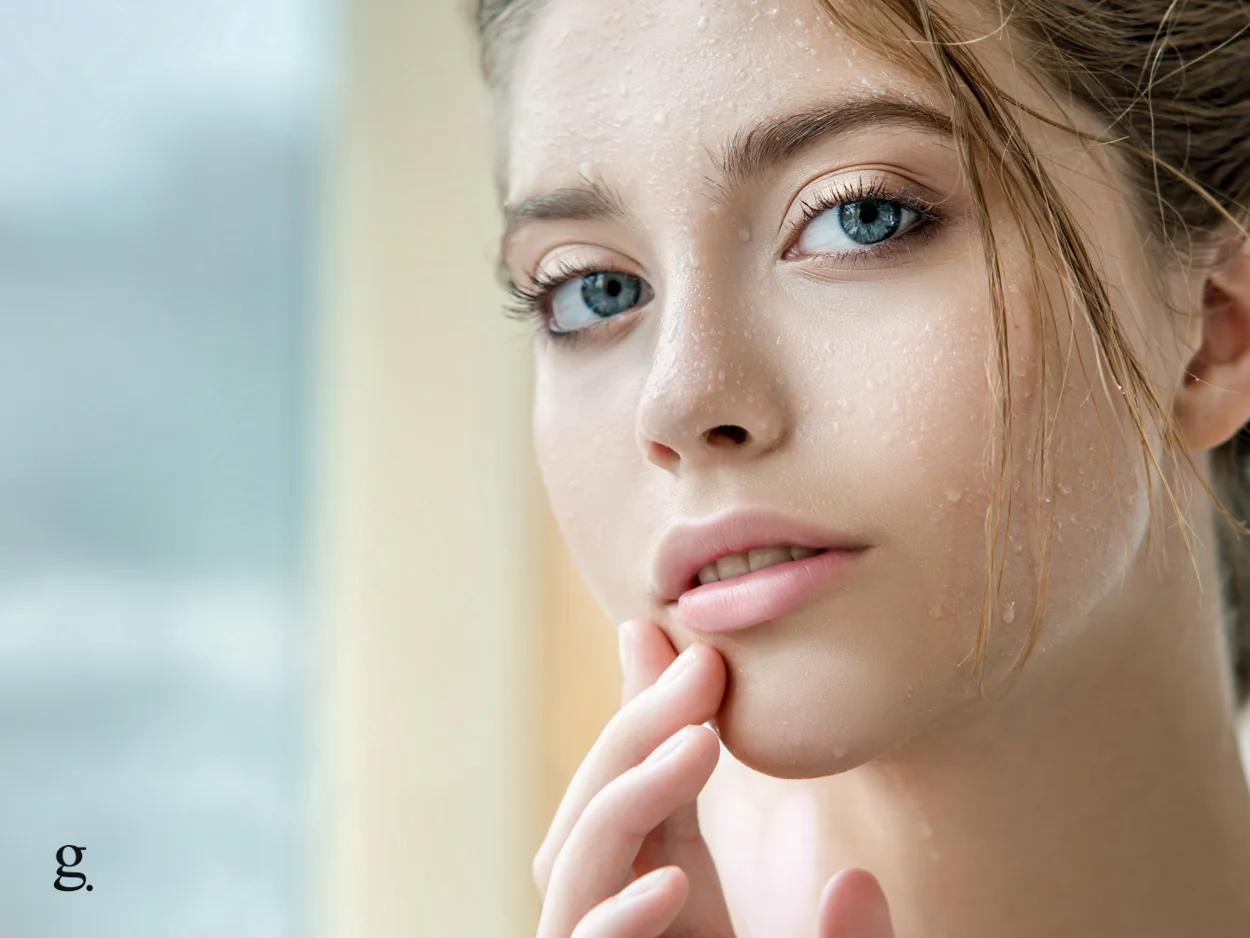Welcome to the world of lip scrubs, where exfoliation and hydration go hand in hand to give you the smooth, kissable lips you’ve always desired. If you’ve ever asked yourself, “Do lip scrubs really work?” then you’re in the right place. This comprehensive guide will delve into the nitty-gritty of lip scrubs, their ingredients, the benefits they offer, and much more. So, let’s dive in and explore the wonders of lip scrubs, and see if they’re the secret to achieving that perfect pout.
What are lip scrubs?
Lip scrubs are exfoliating products specifically designed for the delicate skin of your lips. They are formulated with a blend of gentle, yet effective ingredients to help slough away dead skin cells, revealing a smoother and more supple lip surface. Typically, lip scrubs contain a combination of natural abrasives such as sugar or salt granules, along with nourishing oils or butters to moisturize and soothe the lips during the exfoliation process.
The primary purpose of a lip scrub is to remove the build-up of dead skin cells that can cause your lips to feel rough, dry, or flaky. By gently exfoliating, lip scrubs promote a more even and healthy appearance, and can also help to prep your lips for a smoother application of lip products like lipstick or lip gloss. With a variety of scents, flavors, and ingredients to choose from, lip scrubs can be a delightful addition to your skincare routine.
What Lip Scrub Products Can Do
Lip scrub products can work wonders for your lips when used correctly. Here are some of the key benefits you can expect from incorporating lip scrubs into your beauty regimen:
- Exfoliation: The main function of a lip scrub is to gently remove dead skin cells. This process helps to reveal the fresh, healthy skin underneath, resulting in smoother, more even lips.
- Hydration: Many lip scrubs contain moisturizing ingredients like oils or butters that help to nourish and hydrate your lips during the exfoliation process. This added moisture can leave your lips feeling soft, supple, and less prone to dryness or chapping.
- Circulation boost: The gentle massaging action of applying a lip scrub can stimulate blood flow to the lip area. This increased circulation can lead to a temporary plumping effect and a natural, healthy-looking flush.
- Prevention of lip issues: Regular use of lip scrubs can help prevent common lip concerns such as dryness, flakiness, and uneven texture, keeping your lips looking and feeling their best.
What Lip Scrub Products Can’t Do
While lip scrubs offer many benefits, it’s essential to be aware of their limitations. Here’s what lip scrub products can’t do:
- Heal severely chapped or cracked lips: While lip scrubs can help remove dead skin and provide hydration, they are not a cure for severely chapped or cracked lips. In such cases, it’s important to use a medicated lip balm or consult with a dermatologist for appropriate treatment.
- Provide long-lasting hydration: Although lip scrubs contain moisturizing ingredients, their primary purpose is exfoliation. For lasting hydration, it’s crucial to follow up with a nourishing lip balm or treatment to lock in moisture.
- Eliminate lip lines or wrinkles: Lip scrubs cannot erase fine lines or wrinkles around the lips. They can, however, help to create a smoother surface for lip product application, which may temporarily minimize the appearance of lines.
- Treat cold sores or infections: Lip scrubs are not designed to treat cold sores or other lip infections. If you’re experiencing a lip infection or cold sore, consult with a healthcare professional for proper treatment and avoid using a lip scrub until the issue has been resolved.
Are there any risks associated with lip scrubs?
For the vast majority of people, lip scrubs can be a beneficial addition to their beauty routine when used correctly. However, there are some potential risks to be aware of.
Over-exfoliation, caused by using lip scrubs too often or with excessive force, can lead to irritation or damage to the delicate lip skin.
Some individuals might experience allergic reactions to certain ingredients, such as essential oils or chemical exfoliants. Additionally, using a lip scrub with overly abrasive ingredients may cause discomfort if not used gently.
It’s important to choose a gentle product suitable for your skin type and follow the recommended usage guidelines to minimize these risks. By doing so, most people can enjoy the benefits of lip scrubs without any issues.
The Main Ingredients Found In Lip Scrub Products
Lip scrub products often contain a blend of natural and synthetic ingredients designed to exfoliate, moisturize, and nourish the lips. Here are some of the main ingredients you may find in lip scrubs:
Exfoliating agents
- Sugar: Sugar granules, often brown or white, are a popular choice for lip scrubs due to their gentle yet effective exfoliating properties. They dissolve slowly as you massage the scrub, reducing the risk of over-exfoliation.
- Salt: Some lip scrubs use salt, typically finely ground sea salt or Himalayan pink salt, for exfoliation. However, salt can be more abrasive than sugar, so it’s essential to use a gentle touch when using salt-based lip scrubs.
- Alpha Hydroxy Acids (AHAs): AHAs, such as glycolic acid and lactic acid, are chemical exfoliants that can be found in some lip scrubs. These acids work by breaking down the bonds between dead skin cells, making them easier to remove. AHAs are generally gentle on the skin but should be used with caution on the lips, as the skin in this area is thinner and more sensitive.
- Beta Hydroxy Acids (BHAs): BHAs, such as salicylic acid, are another type of chemical exfoliant occasionally found in lip scrubs. BHAs work similarly to AHAs but are oil-soluble, making them more effective for penetrating deeper into the skin. While BHAs can be helpful for those with oily or acne-prone skin, they should be used cautiously on the lips due to their potential for irritation.
Moisturizing and nourishing ingredients
- Oils: Lip scrubs often contain nourishing oils such as coconut, jojoba, almond, or grapeseed oil to provide hydration and soothe the lips during the exfoliation process.
- Butters: Natural butters like shea, cocoa, or mango butter can be found in lip scrubs for their moisturizing and softening properties, offering an added layer of nourishment to the lips.
Flavorings and scents
- Essential oils: Many lip scrubs include essential oils like peppermint, lavender, or citrus oils, not only for their scent but also for their potential therapeutic benefits.
- Natural extracts: Fruit, vanilla, or other natural extracts are often used to add flavor and fragrance to lip scrubs, making the experience more enjoyable.
Additional ingredients
- Honey: Honey is sometimes included in lip scrubs for its natural antibacterial properties and ability to help retain moisture.
- Vitamin E: Vitamin E is a common ingredient in lip scrubs due to its antioxidant and moisturizing properties, which can help to protect and nourish the lips.
How To Correctly Use Lip Scrubs
Before using a lip scrub, make sure your lips are clean and free of any makeup or lip products. Scoop a small, pea-sized amount of the lip scrub using your fingertip or a small spatula. Gently apply the scrub to your lips in small, circular motions, covering the entire lip area.
Continue to massage the scrub onto your lips for about 30 seconds to a minute to slough off dead skin cells and stimulate circulation.
Afterward, rinse your lips with lukewarm water or use a damp washcloth to gently wipe off the scrub. Be sure to remove all of the product to avoid any residue or grittiness. Gently pat your lips dry with a soft towel or tissue, and follow up with a nourishing lip balm or treatment to lock in moisture and protect your newly exfoliated lips.
Use a lip scrub once or twice a week, depending on your needs and the sensitivity of your lips, to avoid over-exfoliation and irritation. By following these guidelines, you can enjoy the benefits of smoother, softer, and healthier-looking lips.
In summary
To wrap things up, lip scrubs can be an effective addition to your beauty routine, offering exfoliation and hydration for smoother, more supple lips. While they can’t heal severe issues or provide lasting hydration, they do play a valuable role in promoting healthy lip texture and appearance. By understanding the ingredients in lip scrubs and using them correctly, you can enhance your lip care regimen and enjoy the benefits of softer, more kissable lips.

